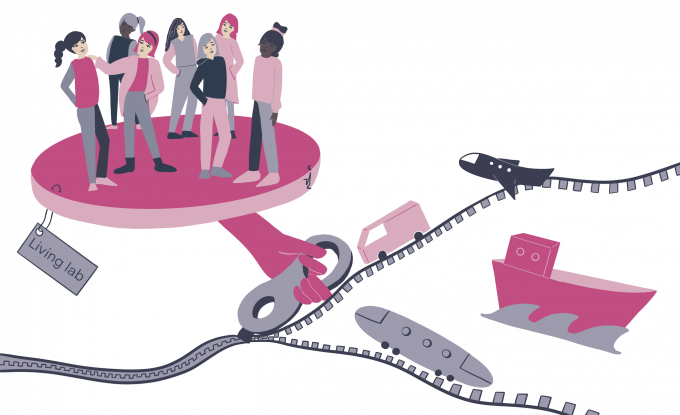Supply chains show slow progress toward e-document transition
Digitisation may have advanced in the wake of the disruptions wrought by the Covid-19 pandemic, ...

There is increasing pressure on transport chains to be environmentally sustainable, predictable, seamless and cost-efficient.
Most end-to-end transport actually engages multiple transport modes involving visits to several transport nodes. This then requires a high degree of collaboration between the involved actors both within and often across national borders.
Big hopes are being placed on digitalisation as an enabler and means for a more integrated and sustainable performance by steering multiple parties towards co-development in making appropriate changes to their practices so as to be better aligned. But to do this requires informed decisions on what changes need to be made and how they should be done. And there is a need to reflect on and experiment with the available options before taking action to ensure that the desired effects are both feasible and effective, both for the individual organisations involved and for the ecosystem as a whole.
FEDeRATED, together with FENIX, is an EU project for digital co-operation that addresses several modes of transport and places a focus on addressing multi-modal concerns through the benefits of enhanced transparency and data sharing beyond the single organisation. Approximately 20 living labs are being conducted under the FEDeRATED banner to validate the DTLF (www.dtlf.eu) concept for a federated network of platforms in an operational and interoperable setting to ensure that the desired business effects will arise.
Participants from several European countries including Sweden, Spain, the Netherlands, Italy, Finland and Luxemburg, and several international organisations such as IATA, are joining forces to innovate the transport ecosystem enabling seamless transport and logistics empowered by digital data sharing.
Regardless of the underlying organisational logic, those in the transport chain cannot operate in isolation. They are highly dependent on what is happening outside their scope of operations to assure that their resources and infrastructure are used optimally.
In particular, they require business intelligence derived from consuming data on the progress and disruptions occurring related to the movements made by transport operators and at previous transport nodes; providing transport operators with the means to optimise their approach to a transport node; and providing the means for a transport co-ordinator to inform their clients on the progress and forecasts associated with the goods and people that are being transported.
Digitalisation offers capabilities for transport nodes to be highly integrated in the transport ecosystem. At its core, collaboration enabled by digital interaction and data streams will expand transport nodes’ event horizons and improve situational awareness providing opportunities for optimising resource and infrastructure utilisation.
The supporting information systems need to incorporate data-agnostic platforms tailored to collect data from different sources and to test new applications in a fast and flexible way. Among the important characteristics for such information systems are the ability to co-ordinate, search and manipulate data flows captured in real time from different data sources, to store data flows for later retrieval, to feed data flows into analytics and visualisation systems and to feed data flows into different front ends to explore use cases and business cases. Such data-agnostic platforms are an important means for the activities conducted within living labs, paying attention towards seamless transport.
For more information and an extended discussion on sustainable multimodal chains here.
In addition, information on how some of the living labs are conducted under FEDeRATED, can be found at this link.
Authors: Mikael Lind, Research Institutes of Sweden (RISE) and Chalmers, Jan Bergstrand, Swedish Transport Administration, Sandra Haraldson, RISE, Kenneth Lind, RISE, Eddie Olsson, RISE, Annica Roos, Swedish Transport Administration, Mikael Renz, Swedish Maritime Administration, Cecilia Strokirk, RISE, Kristine Bull Sletholt, Swedish Transport Administration, Anna Björkman, CLOSER, Kenneth Carling, Dalarna University, Gunnar Ivansson, LearningWell, Mathias Karlsson, Kvarken Ports Umeå, Umeå University, and RISE, Patrik Rudolfsson, Kvarken Ports Umeå.
Comment on this article